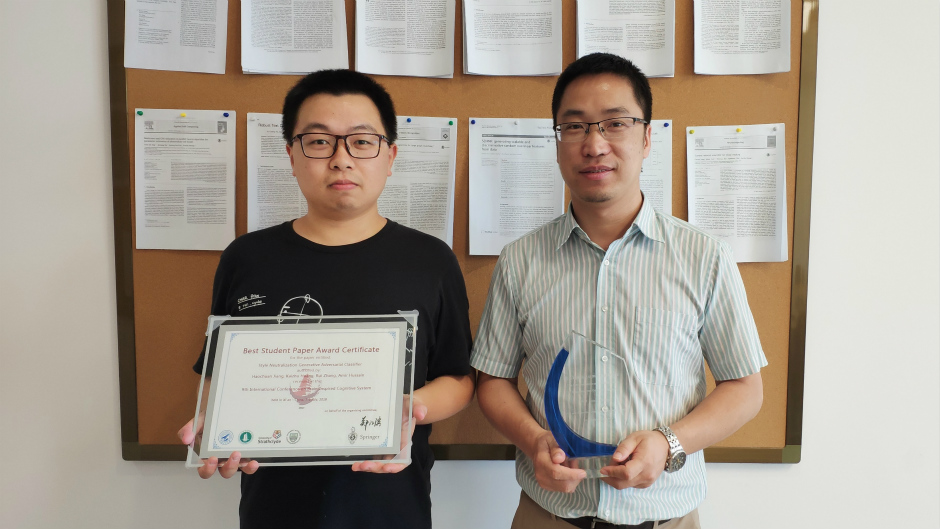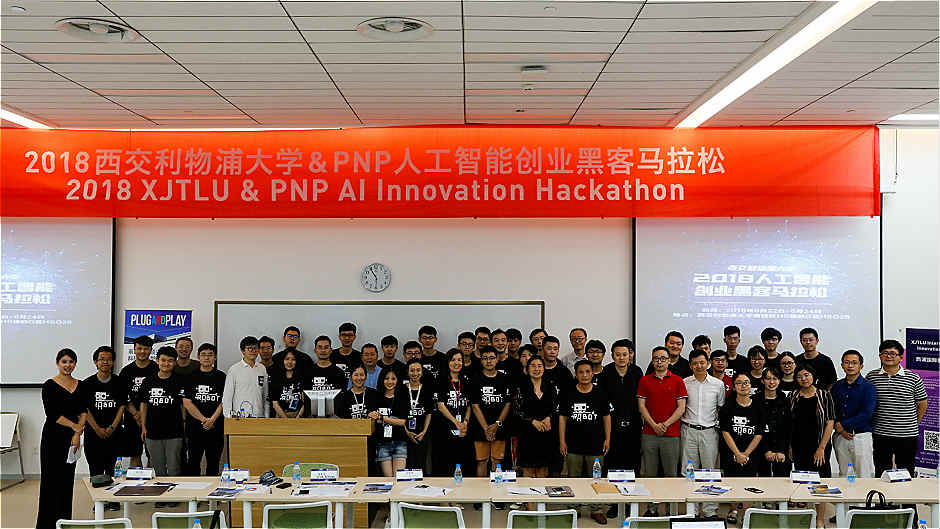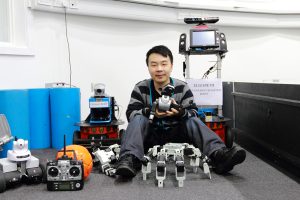17 Sep 2018
Research projects led by Professor Kaizhu Huang from the Department of Electric and Electronic Engineering at Xi’an Jiaotong-Liverpool University received recognition at the 9th International Conference on Brain-Inspired Cognitive Systems, held in Xi’an, China.
Professor Huang delivered a keynote speech on adversarial machine learning, and PhD student Haochuan Jiang received the Best Student Paper Award.

Professor Huang (pictured above, right) explained in his speech, titled ‘Learning Adversarial Examples for Robust Pattern Recognition’, how his team is attempting to solve an essential problem in the AI field:
“Recently, there have been amazing advancements in using deep neural networks in image recognition,” explained Professor Huang. “However, when there is ‘noise’ in an image, DNN’s can easily misclassify them. However, through our research we’re developing more robust systems for pattern recognition.”
Such systems would have many applications, for example, improving biometric recognition systems such as face-recognition software: a neural network would be able to recognise an individual irrespective of slight changes to their appearance (changes in amount of skin tan, facial hair, etc.)
Their research could also lead to more robust pattern recognition in voice and text identification.
PhD student Haochuan Jiang (pictured above, left), under the guidance of Professor Huang, presented his thesis ‘Style Neutralization Generative Adversarial Classifier’ at BICS 2018, for which he received the Best Student Paper Award at the conference.
Generative adversarial networks are types of deep neural networks that can generate new material based on inputs: for example, a GAN can take a photo of a person and generate an image of how they would appear 20 years older.
Haochuan’s contribution was to develop a GAN that can remove the style of samples (for example, handwriting style) creating standardised outputs that are more easily recognised by machines.
The first session of BICS was held in 2004. This year’s session was held in Xi’an, Shaanxi province, which included theses from the fields of machine learning and brain cognition, all of them to be published in the Springer Lecture Notes in Artificial Intelligence series and indexed by engineering literature database Ei Compendex.
The research team led by Professor Huang has received several awards in AI internationally, including a number of Best Thesis Awards of international conferences and international research competition awards.
From 2017 to 2018, The Institute of Electrical and Electronics Engineers has published or accepted six journal articles from the team, which has also gained funding for two projects from the National Natural Science Foundation of China.
“XJTLU’s recent research results in AI have been recognised by peer experts at home and abroad, which is favourable for the University to get further involved in major national projects of AI development,” said Professor Huang.
Story provided by the Department of Electrical and Electronic Engineering
Translated by Boqiang Xiao; edited by Danny Abbasi
17 Sep 2018
RELATED NEWS

Students show their innovative talents at Hackathon
A competition focused on innovation in the field of artificial intelligence was held at Xi’an Jiaotong-Liverpool University.The XJTLU and Plug and Play Artif...
Learn more

XJTLU national research outputs hit record high
The quantity of research projects at Xi’an Jiaotong-Liverpool University funded by the National Natural Science Foundation of China has reached a record high...
Learn more








